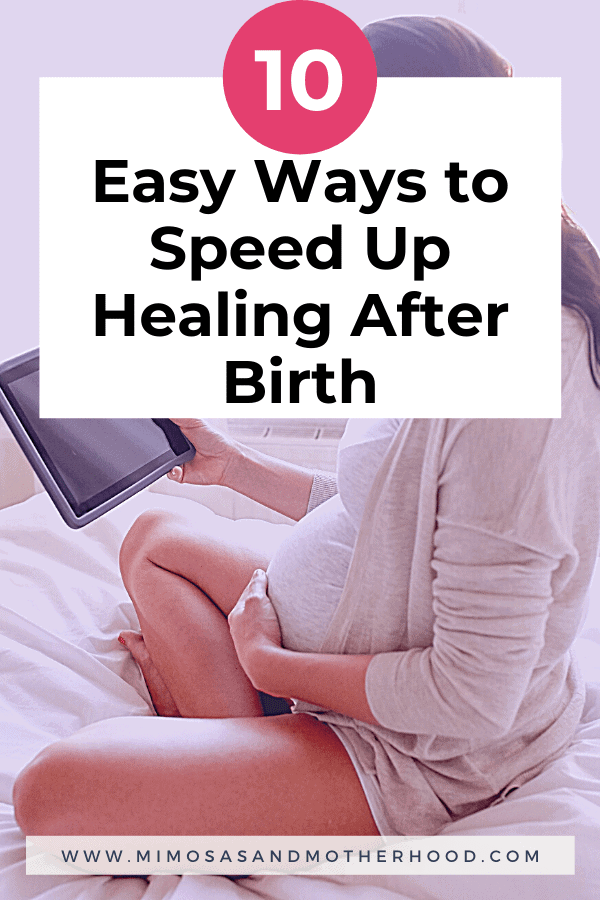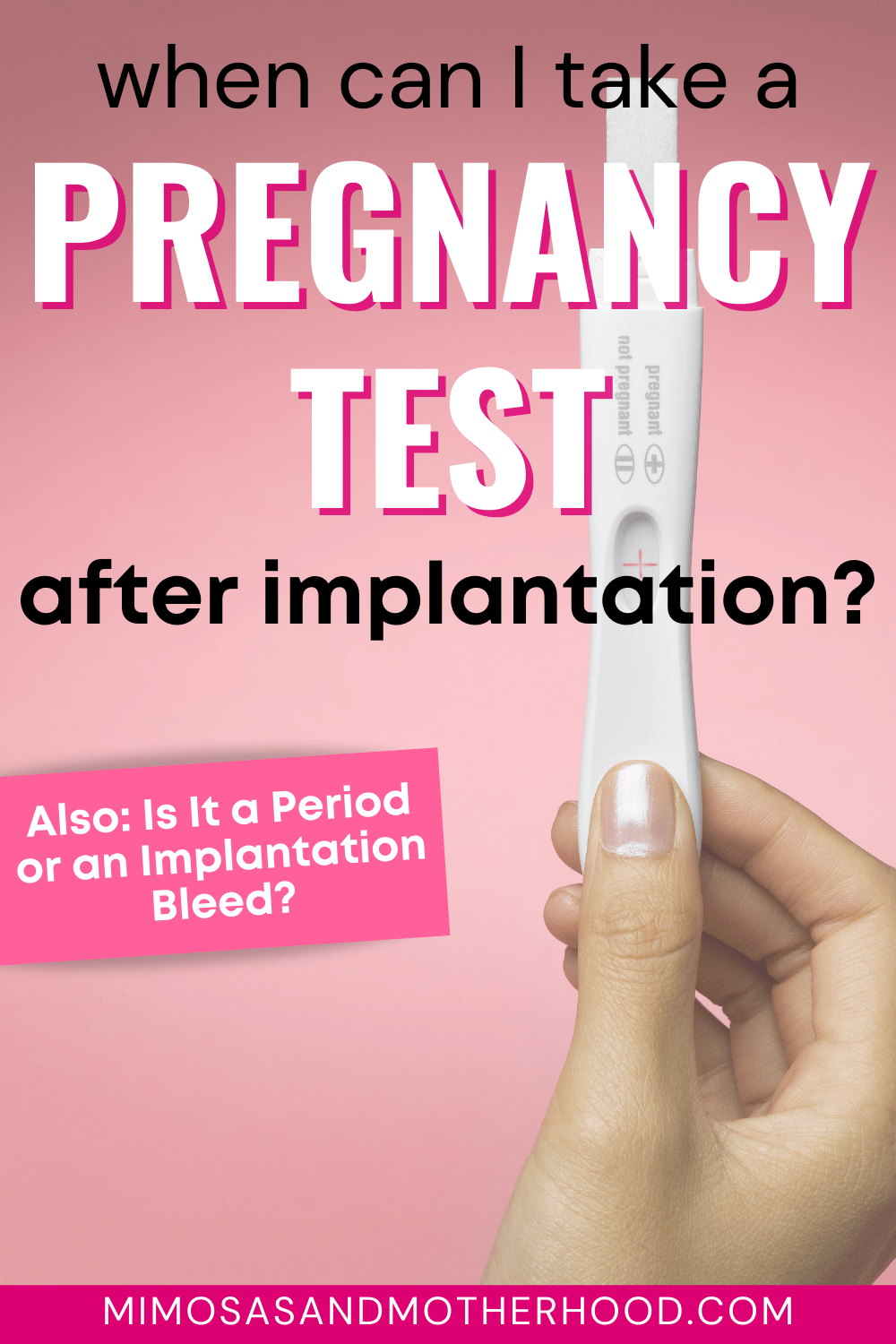How to Relieve Pelvic Pain During Pregnancy
Pelvic pain and discomfort can be incredibly tough for many expecting moms. Read on to learn how to relieve pelvic pain during pregnancy (including the tips that have helped other real moms the most).

One of the biggest challenges for most expecting moms are the aches and pains associated with your growing body. Pelvic pain can range from mild discomfort for some women through absolutely excruciating and completely debilitating for others.
If you are experience pelvic discomfort or pain, you’re not alone! It’s one of the most common conditions pregnant women experience. In fact, approximately 72% of pregnant women experience pelvic pain at some point. I’m a mom of 2, and I know from experience just how rough pelvic pain can be, especially during those final months of pregnancy.
Note: Some links may be affiliate links. That means I may make a commission if you use my links to purchase, at no extra added cost to you! I only recommend products that I personally love and believe in. Full disclaimer here.
What Causes Pelvic Pain During Pregnancy?
Your body is doing some incredible stuff during pregnancy. It’s growing and shifting and changing to accommodate that little life inside of you.
Your pelvis plays a major role in that. You probably already know that some of the pressure you’re feeling is due to your pelvis helping to support the added weight of your belly as baby grows. It also has to separate to allow for baby to make his way through the birth canal during childbirth!
As amazing as this is, it’s also the recipe for major discomfort and strange sensations in your pelvic region and lower abdomen. Your skin, muscles and ligaments are stretching, and the size of your uterus and baby’s actual position can all add to the pain you might be feeling.
Some of the most common causes of pelvic pain during pregnancy include:
Pelvic pressure: It goes without saying, but as baby’s weight is pushing down on your pelvis, this could cause you to start feeling pressure and pain. Usually, this pressure is most intense when you’re walking or standing. For many women, relief is felt when you lie down.
Round ligament pain: As your baby grows, your belly is growing too, which means your abdominal muscles are also stretching. With these muscles stretching, so are the ligaments that proceed from the front of the uterus. For some women this feels like intense stretching but for others (including myself) it can feel like sharp, painful muscle spasms. This can also be connected the sacroiliac joints and sciatic nerve.
Braxton-Hicks Contractions: For many women, Braxton-Hicks contractors feel like a sensation in your pelvic area, and are only felt in the front of your body. They do not cause labor to progress, and should also stop if you change positions. If you think you might be feeling them, try standing up and walking around, or drinking some extra water and being sure you go the bathroom again (as both dehydration and a full bladder can cause Braxton-Hicks).
Lower Back Pain: Sometimes the pelvic pain and pressure you think you’re feeling might actually be radiating from your back! It’s very common to experience low back pain during pregnancy from the extra weight and pressure from baby. However, it can also be caused by kidney stones, a urinary tract infection (UTI) or constipation.
Symphysis Pubis Dysfunction (SPD): SPD is a painful condition in which the pubic bone begins to loosen and separate prematurely due to the pregnancy hormone relaxin. Relaxin causes your muscles and ligaments to relax, helping your body to allow your baby through the birth canal. This condition can cause sharp pains in the pubic bone or a shooting sensation when you’re in a position that aggravates it.
It’s important to note that this is not a common situation, but for some women using a pelvic belt like this one can help their symptoms.

When should I be concerned about pelvic pain during pregnancy?
For most women, pelvic pain is a normal (though frustrating) part of pregnancy. However, if your pelvic pain is ever accompanied by vaginal bleeding, call your doctor immediately.
In early pregnancy severe or sudden pelvic pain could be a signal of an ectopic pregnancy or a possible miscarriage. If you have severe pain during your first trimester, you also want to contact your healthcare provider as soon as possible.
It’s important to note that ANY time you have severe pelvic pain, talk to your doctor. While many times this could be due to general discomfort and pelvic pain that needs to be managed through exercise, stretching or chiropractic care, pelvic pain can also indicate preterm labor, a UTI or kidney stones.
How to Relieve Pelvic Pain During Pregnancy
If you’re struggling with pelvic pain, there are a few things that can help your symptoms.
First, try to identify the source of where your pain is coming from. This will allow you to determine how to move to help relieve the pressure. Many times just finding a comfortable position can make a big difference.
Many women swear by using a pregnancy pillow like this one which has over 31,000 positive review. They are designed specifically to go between your knees to help relieve pressure on your pelvis by keeping your hips parallel while also propping up your knees. If you don’t have a pregnancy pillow, a regular pillow will also work!
Consider also looking into a pelvic support belt, belly bands or maternity belts, like this one or this one. These are specially designed to lift your belly and give it extra support. Some can even be heated in the microwave to also provide heat therapy at the same time, like this one.
Compression pantyhose and compression leggings can also help to support your belly by gently lifting it, with the added element of compression around your legs. These and these are both amazing, especially if you are also experiencing swelling in your feet and legs.
Struggling at the office? For many women, simply sitting at a desk can put undue stress on your body and cause extra pain. I personally got to a point in my third trimester where I dreaded going into the office for exactly this reason.
Try placing a small stool like this under your desk to raise your feet and knees back into alignment with your hips. You could also opt for a foot rest like this one. I also found relief by swapping out my desk chair with an exercise ball or yoga ball like this (which can also double as a birthing ball for labor!).
Massage is a wonderful treatment for pelvic pressure and pain during pregnancy. Seek out a massage therapist or physical therapist who specializes in prenatal massage or pregnancy massage.
Never lie flat on your belly when getting a massage. Specialized massage therapists might have a special table to accommodate your belly, or use a non-traditional position (like lying on your side) to perform the massage.
There are specialized chiropractors who receive training in prenatal chiropractic care, and know techniques to help treat pelvic pain. I personally sought out chiropractic treatment during both of my pregnancies, and saw a big difference when I sought out a Webster Certified chiropractor with my second child.
Be sure you ask about the credentials and experience from any chiropractor you choose to see. If you need help finding one, your OBGYN or midwife’s office might have a recommendation.
Staying active during pregnancy is one of the best ways to help not only ease pelvic pain, but also help to prevent it in the first place.
If your doctor has cleared you to exercise, consider workout classes, swimming, water aerobics, prenatal yoga and pilates. You can learn about different types of pilates here. All of these are great low-impact exercises. You can also find some fantastic and free prenatal exercises on YouTube.
Pelvic tilt exercises can help relieve your pain while stretching your pelvic floor, hip muscles, stomach and back. You can do these while standing up, on all fours or even lying on your back. Here’s a great video showing you how:
A warm bath (NOT hot bath) with some Epsom salt can also help relieve pelvic pain during pregnancy. For safety, be sure the water is not above 100 degrees, as an elevated body temperature can pose a risk for your baby.
Again, if you are experiencing cramping, contractions or serious pelvic pressure that is not relieved by changing positions or lying down, you need to contact your medical team immediately, as this could signal pre-term labor.

What to Avoid when Treating Pelvic Pain During Pregnancy
Searching for pain relief? As normal as it is when not pregnant, you need to skip many pain relievers while pregnant, like aspirin and ibuprofen. Acetaminophen (Tylenol) is considered to be the only safe over the counter pain medication. Be sure to talk to your doctor about any prescriptions you are on to be sure they are safe for baby.
Warm baths are great, but avoid those over 100 degrees (as well as hot tubs) as an elevated body temperature is dangerous for baby. The same goes for a heating pad unless you are only using a low-temperature setting and for only 15-20 minutes at a time.
Expecting? You won’t want to miss these articles too:
Free Printable Pregnancy Planner Workbook and Journal
How to Reduce Labor Pain During Natural Childbirth
FREE Positive Printable Birth Affirmation Cards To Get You Through Labor
Mama Natural Birth Course Review {2022}
35 Romantic Babymoon Destination Ideas
More Common Questions about Pelvic Pain During Pregnancy
When Does Pelvic Pain Occur?
For most women, pelvic pain is most common in mid-to-late pregnancy. This is due to weight gain and when baby is the largest and causing the most pressure on your body. It’s absolutely possible for pelvic pain to occur earlier in pregnancy, especially if this is not your first child.
Pelvic pain can also get much worse about two to four weeks before birth, once lightening occurs. Lightening is when your baby drops into the pelvic area in preparation for labor. The good news is that you’re nearing labor! The challenging news is that this also means your baby’s head puts stress on the joints, muscles and bones in your pelvis and back. Hang in there mama. You’re so close!
How long does pelvic pain last during pregnancy?
For many women, pelvic pain can begin occurring in early pregnancy. Pregnancy hormones play a big part in this. However, most women report that pelvic pain and hip pain begins to really bother them towards the end of the second trimester and during the third trimester.
How can I sleep with pelvic pain during pregnancy?
Sleeping can be huge struggle throughout pregnancy, but especially in the third trimester when you’re experiencing pelvic pain and your growing baby feels like he’s running out of space. Many women swear by using a pregnancy pillow like this one to help with sleep.
They are designed specifically to go between your knees to help relieve pressure on your pelvis by keeping your hips parallel while also propping up your knees. If you don’t have a pregnancy pillow, a regular pillow will also work!
How can I relieve pelvic pain during early pregnancy naturally?
Some of the most effective treatments for many moms to be are actually considered natural treatments! Things like massage, chiropractic care, stretching, walking, yoga and pilates are all ways to help relieve pelvic pain naturally.
Always be sure to talk to your doctor before trying anything new.

The Bottom Line When it Comes to Relieving Pelvic Pain During Pregnancy
Pelvic pain and discomfort can be incredibly frustrating, and make those last few weeks feel like they’re taking forever. Know that if you’re trying to find a way to treat your pelvic pain, you’re not alone! The majority of pregnant women go through this too.
Talk with your doctor and decide together what to try. From massage and prenatal chiropractic care to exercise, stretching, pregnancy pillows and support bands, there are lots of options that can help.







